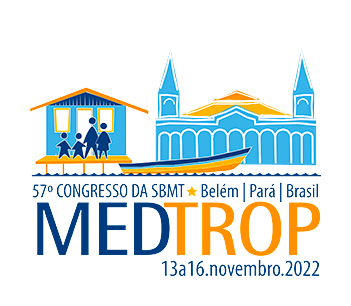Dados do Trabalho
Título
Systematic review of candidate gene association studies with COVID-19 severity
Introdução
Since its emergence in Wuhan (China) in the second half of 2019, SARS- CoV-2 virus (COVID-19) has spread rapidly around the world, causing the largest pandemic of the century so far. Variability in the clinical expression and outcomes of COVID-19 has been associated with host factors such as age, sex, comorbidities, ethnicity, and socioeconomic status. The host genetic factors also play an important role in the pathophysiology of SARS-CoV-2, being able to influence susceptibility to infection, severity, and disease progression.
Objetivo(s)
In this study, we performed a systematic review order to identify candidate genes related to the severity of COVID-19.
Material e Métodos
Following PRISMA guidelines, we searched for all relevant articles published up to June 2022 from four online databases: PubMed, Scielo, Google Scholar, and WHO Global Research on COVID-19. The search terms used were: severity AND COVID- 19 AND gene OR allele OR polymorphism OR SNP OR variant OR genetic. Case-control genetic association studies published in English in a peer-reviewed scientific journal were included in the analysis to identify the genetic variants previously investigated. Reviews were excluded.
Resultados e Conclusão
The SNV variant H159Y of the TNFRSF13-C gene is related to increased NF-kB activation and B-cell production and was found significantly in patients with severe cases of COVID-19. The SNP rs12252-G of the IFITM3 gene was associated with severity in relation to hospital admission and mortality. The protein encoded by IFTM3 plays an important role in the adaptive and innate immune response. The SNPs rs2285666-T and rs2106809, in ACE2 gene, were associated with the severity of the disease, while rs2074192 and rs1978124 showed a protective effect for this condition. The DD genotype and frequency of D allele in ACE1 gene were significantly associated with severe COVID-19 in patients with older age (≥46 years) and comorbidities. Angiotensin-converting enzyme1 (ACE1) converts angiotensin I to angiotensin II which was further metabolized by ACE 2 (ACE2). The ACE2 receptor bound to SARS-CoV-2 facilitates its entry into the host cell, and the imbalance between these two receptor molecules plays a crucial role in the pathogenesis of COVID-19. The variant rs2070788-G in the TMPRSS2 was associated with the case fatality rate. The TMPRSS2 gene encodes a serine protease enzyme that helps the entry of various viruses into host cells by proteolytic cleavage.
Palavras-chave
COVID-19, SARS-CoV-2, genetics, polymorphisms, severity
Área
Eixo 09 | COVID-19
Categoria
NÃO desejo concorrer ao Prêmio Jovem Pesquisador
Autores
Mayara Natália Santana da Silva, Jessica Ligia Picanço Machado, Daniel Valle Vasconcelos Santos
